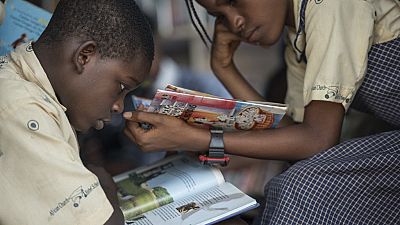Nigeria
In Nigeria, 18.5 million children, are out of school, a figure that has risen since 2001, according to the United Nations children’s fund (UNICEF).
Last year, Unicef estimated that 10.5 million children were out of school in Africa's most populous country.
"Currently in Nigeria, there are 18.5 million children out of school, 60% of whom (more than 10 million) are girls," Rahama Farah, head of the UNICEF office in Kano (North), told journalists on Wednesday.
The numerous attacks on schools by jihadists and criminal gangs in the north have particularly harmed children's education, Farah said.
"These attacks have created a precarious learning environment, discouraging parents and guardians from sending their children to school," Farah insisted.
Since Boko Haram abducted 200 schoolgirls in the northeastern town of Chibok in 2014, dozens of schools have been targeted for similar mass abductions.
Last year, about 1,500 students were kidnapped by gunmen, according to UNICEF. While most of the young hostages have since been released for ransom, some still remain in captivity in forests, havens of armed groups.
In the predominantly Muslim north, Mr Farah said only one in four girls from "poor, rural families" finish secondary school. Insecurity, he said, "accentuates gender inequalities".
Violence and mass kidnappings have forced the authorities to close more than 11,000 schools in the country since December 2020, according to UNICEF.
The situation has resulted in increasing cases of child marriage and early pregnancy, according to the UN agency.





![Victory for girl-child rights in Tanzania as child marriage ban is upheld [Morning call]](https://static.euronews.com/articles/909495/320x180_909495.jpg)
![Lyal protect: mobile app to fight child marriage in Chad [The Morning Call]](https://static.euronews.com/articles/605559/320x180_605559.jpg)






01:55
Burkina Faso's only eye doctor for children sees trauma of both play and conflict
01:12
One child displaced every five seconds in MENA region conflicts
01:05
Study finds millions of children at risk as global vaccine rates fall
01:52
138 million child workers globally in 2024, number down from 2020
02:20
Lisbon art installation highlights the suffering of Gaza’s children
01:10
A South African woman is sentenced to life in prison for selling her young daughter